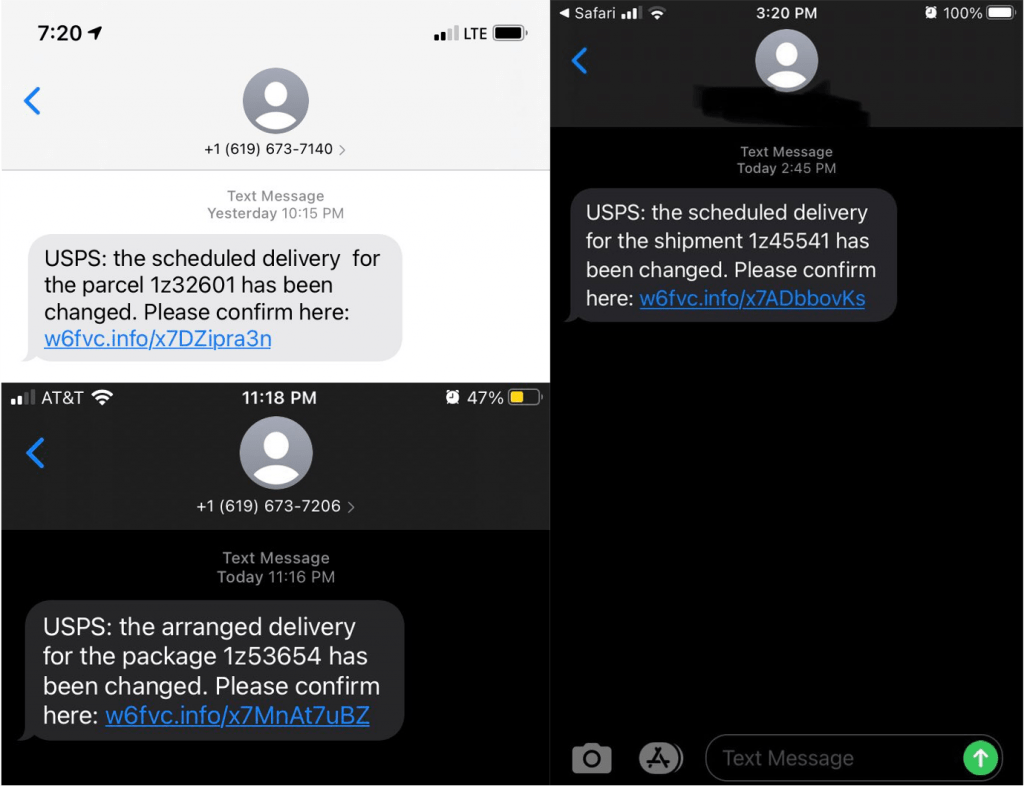Phishing attacks come in various forms and versions. Sometimes, even legitimate or official messages are used as a part of the scammers’ tricks to steal from you. In this post, we will share the details of 3 trending scams – USPS delivery phishing, COVID-19 vaccine survey, and WhatsApp verification code scams. Check how these scams work and learn tips to protect yourself from them. Can you spot all these scams?
USPS Delivery Phishing Scam
We have written articles about delivery phishing scams several times, including FedEx and DHL. Following these scam cases, USPS (U.S. Postal Service) delivery text scams are rising as well. Scammers pose as USPS and send text messages, falsely claiming that the delivery for your package has been changed and that you have to confirm the arrangement through a link they provide.
Content
In-transit now your USPS package with order no 9452 9502 8789 4032 3021 44 will be delivered today with these coupons. Track here <URL>
USPS: the scheduled delivery for the parcel 1z32601 has been changed, Please confirm here: <URL>
The link included in the text message is a phishing link. It leads to an online survey page, which says you can claim a PlayStation 5 by completing the survey. After that, you will have to enter banking details, such as your credit card number and CVC code for the “delivery” of your gift. Of course, there is no gift at all; all the sensitive credentials you submit will end up in the scammers’ hands. They can then steal your money as well as your identity!

ScamCheck: A Free Tool to Combat Scams
Please do not click on links from unknown sources. Besides phishing scams, in a worse situation, malware will start to download once you click on the link. Copy-paste any link and send it to Trend Micro ScamCheck on Messenger or WhatsApp for immediate scam detection:
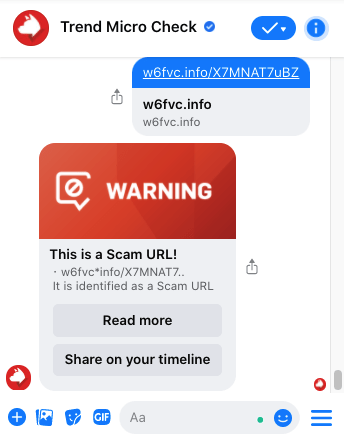
You can also send a screenshot of suspicious text messages to Trend Micro ScamCheck. It detects scams for you in a second.
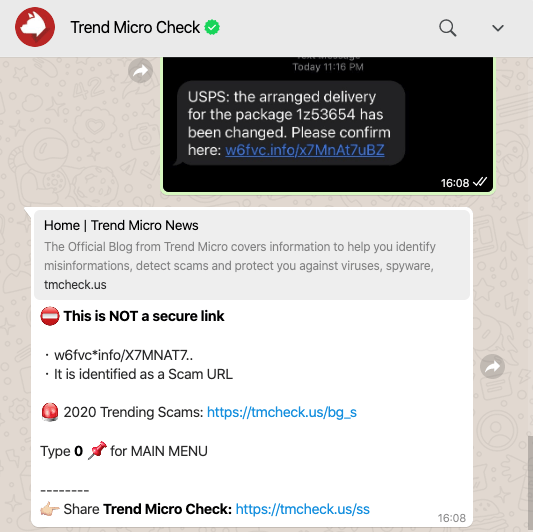
Trend Micro ScamCheck is also available as a Chrome extension. It will block dangerous sites for you automatically:
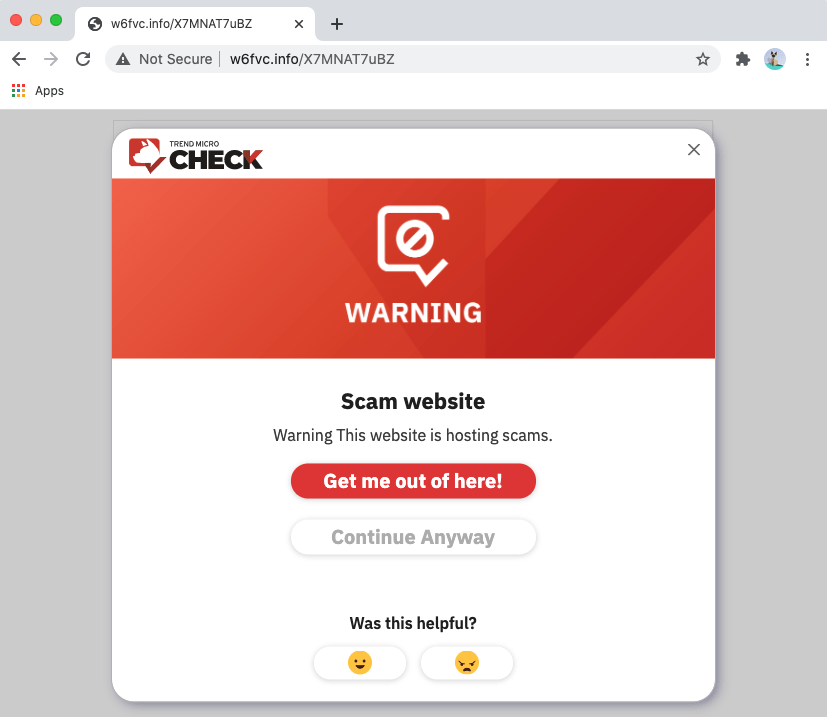
Vaccine Survey Scam
COVID-19 pandemic has not come to an end yet, and neither do those COVID-related scams! Scammers send text messages, claiming to offer you a reward for participating in a “national vaccine survey” about COVID-19 vaccines:
Thank you for your application, you qualified for national Vaccine survey. It takes 5 minutes and you will get $200 Just For Participating. Start now <URL>
The message contains a phishing link. If you take the bait, this is what you will see:
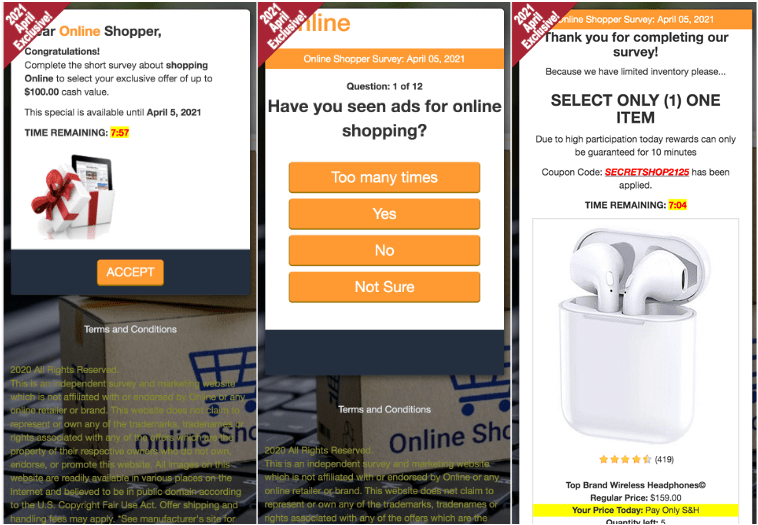
After participating in their fake survey, you will be prompted to click a phishing link and enter your credit card number as well as the CVC code. Scammers will use the personal information you have provided for other scams, such as identity theft.
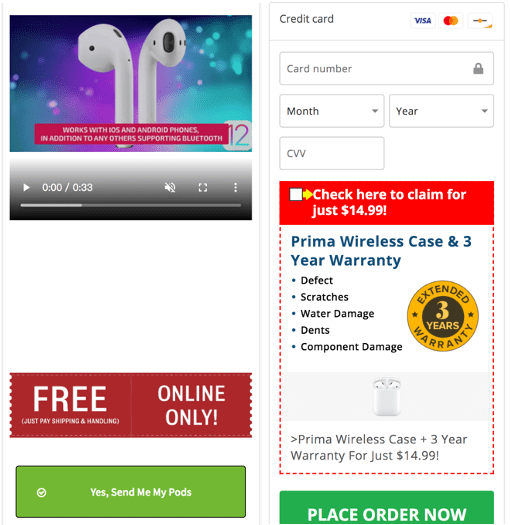
How to protect yourself from phishing scams?
- Double-check the sender’s mobile number/email address.
- Reach out to the official website or customer support directly for help.
- NEVER click links or attachments from unknown sources. Use Trend Micro ScamCheck to detect scams with ease!
WhatsApp Verification Code Scam
You think you can differentiate legitimate text messages from phony ones, but what if scammers manage to send you a genuine message from WhatsApp? Watch out for the latest WhatsApp verification code scam!
The scam comes in two steps:
1. You receive this message with a 6-digit OTP verification code and a link:
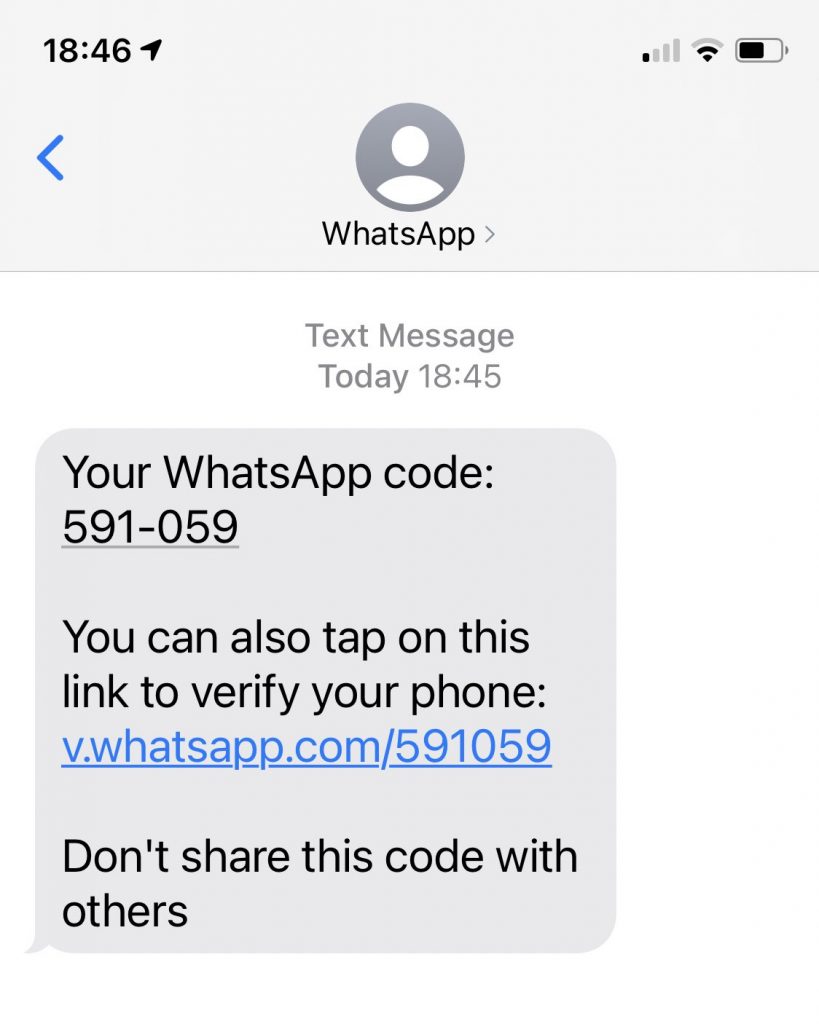
Content
Your WhatsApp code: 591-059 You can also tap on this link to verify your phone: v.whatsapD.com/591059 Don’t share this code with others
2. One of your WhatsApp contacts sends you a message and asks you to reveal the 6-digit OTP code you have received. For example, the message reads, “Hello, sorry I sent you a 6-digit code by SMS by mistake. Can you transfer it to me, please? It’s urgent.”
Scammers might convince you that they are your friends or family, but in fact, they have already taken over your contacts’ accounts! Do not send them the code, or they can get access to your WhatsApp account and use the same tactics to trick more people!
Read more about WhatsApp verification code scams here.
How to avoid WhatsApp verification scams
- Turn on 2-step verification/2-factor authentication (2FA) on your WhatsApp accounts. By doing so, you can protect your WhatsApp account with your own two-step PIN or associate an email address so that it’s difficult to hack.
- Never share any verification codes with others. Scammers can pretend to be anyone you know and try to steal from you. Don’t fall for it!
- Notify your friend whose WhatsApp account has been hacked.
Did you successfully spot the scams? Remember, always CHECK before your next move.
If you think Trend Micro ScamCheck is helpful, please SHARE to protect your family and friends.
Click on the button below to try Trend Micro ScamCheck for free now:

